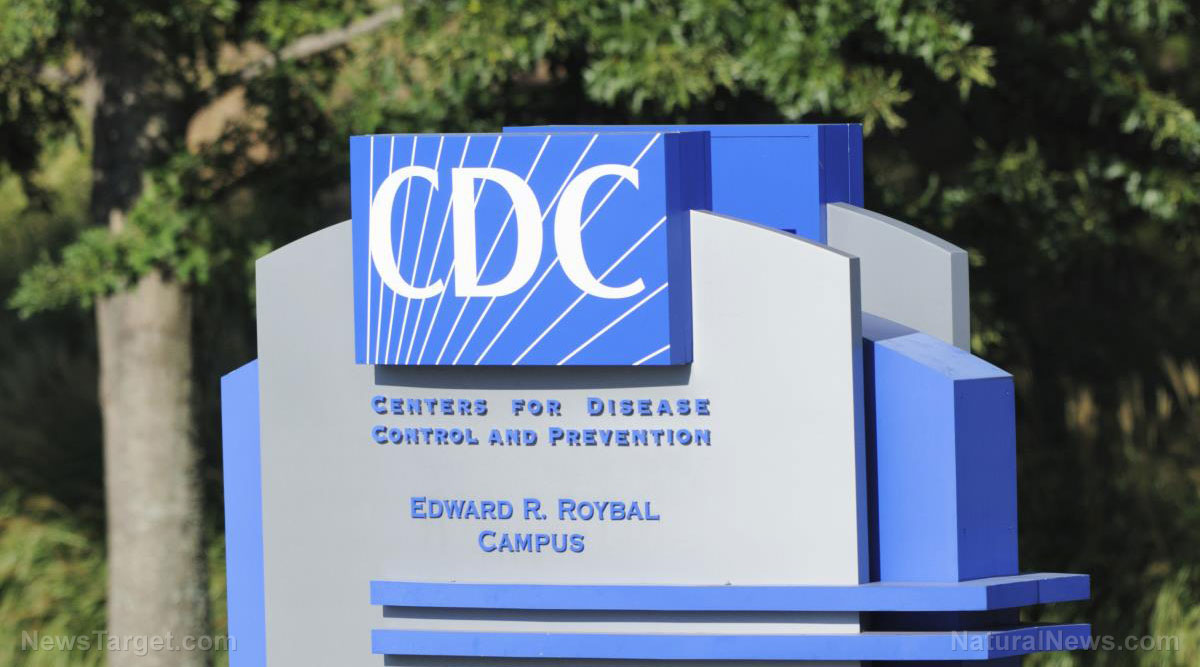Another dark side to Ozempic emerges: Weight loss drug linked to kidney cancer rise
06/05/2025 / By Lance D Johnson

In Hollywood’s relentless pursuit of thinness, celebrities are trading their health for the illusion of quick fixes, with Ozempic becoming the latest fad. But beneath the glossy veneer of rapid weight loss lies a grim reality: mounting evidence suggests this diabetes-turned-weight-loss drug may be linked to kidney cancer while masking deeper metabolic dysfunction.
A groundbreaking study reveals a 33% higher incidence of kidney cancer among Ozempic users. This “silent” disease often strikes without warning, and its incidence was much greater in the group who shot up with Ozempic. Meanwhile, the pharmaceutical industry and complicit media outlets downplay the risks, pushing these synthetic reptile-venom concoctions as the heal-all solution to obesity, diabetes, and related health issues.
But in the real world, nutrition, detoxification, removing junk food, disciplined exercise and movement are the key to long term weight loss and healthy metabolic function. These Ozempic injections lead to pharmaceutical dependence and a host of internal health issues. Ozempic doesn’t fix obesity—it hijacks the body’s natural systems, trading one crisis for another, masking metabolic issues, trading exercise discipline for false promises and meritless gains that will soon fade away to accelerated aging, gaunt frames, and returning fatness and fatigue, including some of the most awful side effects like blindness!
Key points:
- A major study of 86,000 patients found Ozempic and similar GLP-1 drugs increase kidney cancer risk by 33%.
- Kidney cancer is a “silent killer,” often undetected until it’s advanced, with symptoms like blood in urine or back pain.
- Despite lowering risks for some obesity-linked cancers (e.g., ovarian, endometrial), Ozempic’s side effects—vomiting, dehydration, and cellular disruption—may ravage kidney health.
- Doctors admit the link isn’t definitive but warn of “concerning” trends, demanding further research as millions blindly inject the drug.
- Natural alternatives—whole foods, detoxifying herbs, and physical exertion—remain ignored despite offering sustainable, side-effect-free healing.
The Ozempic deception: A shortcut to catastrophe
Ozempic’s rise to fame mirrors the pharmaceutical industry’s playbook: exploit desperation, suppress dissent, and monetize sickness, hyping up a drug that has a dark side. Originally marketed for Type 2 diabetes, it was rebranded as a weight-loss miracle, despite its FDA label listing thyroid tumors, pancreatic inflammation, and kidney failure as potential side effects. The latest study, presented at the American Society of Clinical Oncology, exposes another layer of risk: kidney cancer. In the study, kidney cancer claimed 83 Ozempic users compared to 58 non-users in a decade-long analysis.
Dr. Hao Dai, the study’s lead researcher, stopped short of declaring causation but admitted the findings were “concerning.” His caution is telling — corporate medicine rarely sounds the alarm until bodies pile up. Meanwhile, Ozempic’s defenders, like Dr. Neil Iyengar of Memorial Sloan Kettering, dismiss the cancer link, arguing conflicting data exists. But how many patients will become statistical casualties before the truth prevails? Are people who ignore cellular health and exercise more likely to succumb to cancer? Common sense says, yes.
Shortcuts won’t save you from aging, cancer, obesity
Unlike aggressive cancers that announce their presence early, kidney cancer lurks, often undiagnosed until metastasis begins. By then, survival rates plummet. Ozempic’s mechanism—slowing digestion and inducing vomiting—creates a perfect storm for kidney damage. Dehydration strains renal function, while GLP-1’s interference with cell growth may trigger malignant mutations.
A 2023 study of 1.6 million diabetics echoed these fears, showing a 54% higher kidney cancer risk among GLP-1 users compared to those on metformin. Yet, the FDA green-lit Ozempic for kidney “protection” in diabetic patients.
The Ozempic craze reflects a societal addiction to shortcuts, rejecting the labor of true health, the commitment of getting up every morning and exercising and fueling the body with the nutrients it needs, not the junk food that fattens and kills. Unlike synthetic drugs, nature’s solutions — fiber-rich diets, adaptogenic herbs like ashwagandha, schisandra berry, and maca root address root causes in the microbiome and metabolic processes. Detoxifying the liver with dandelion root; balancing hormones with black cohosh (women) and eleutherococcus root (men); and rebuilding gut flora (prebiotic fibers) aren’t the most glamorous methods, but they’re proven to rebuild the body from the inside out, for homeostasis.
As Dr. Dai (author of the Ozempic study) calls for “more monitoring” to see if Ozempic causes cancers down the road, everyone can take responsibility now and give the body what it needs — discipline and nutrition — so it can activate healing within and maintain progress over time.
Sources include:
Submit a correction >>
Tagged Under:
Big Pharma, cancer risk, dehydration, diabetes, FDA, fight obesity, GLP-1, holistic health, kidney cancer, Ozempic, pancreatic inflammation, pharmaceutical fraud, Prescription drugs, research, thyroid tumors, truth, weight loss drugs
This article may contain statements that reflect the opinion of the author




















